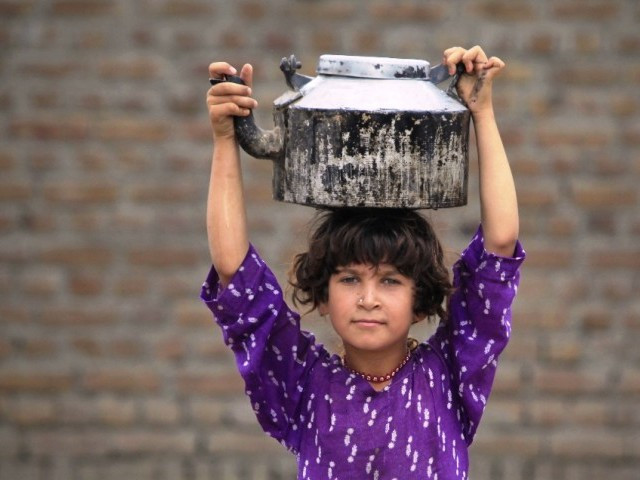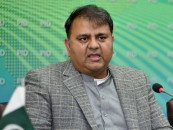Is Pakistan really reaping the fruits of economic progress?
Performance on governance indicators remains much below South Asian average

Performance on governance indicators remains much below South Asian average. PHOTO: REUTERS
However, it is important to analyse whether there has been a positive change in the lives of the ordinary citizens of the country. Have they tasted the fruit of economic progress?
Pakistan lags behind India, Bangladesh in economic growth: report
Pakistan’s economic landscape
Taking a look at the economic environment in the country, economic growth in Pakistan has increased in FY16 to 4.7% relative to 3.7% in FY13. Inflation has also witnessed a marked decline in FY16 recorded at 2.9% dropping from a high of 7.4% in FY13. This has largely been attributed to a global environment of low oil prices. The country has also strengthened its fiscal position with the overall budget deficit narrowing by 3.9% of the GDP.
However, public debt remains high at about 65% of the GDP, which is significantly above the agreed limit of 60% under the Fiscal Responsibility and Debt Limitation Act of 2008. In terms of the external sector, exports have witnessed a continuous decline primarily due to negative growth in the agriculture sector specifically due to a weak cotton harvest. However, overall buoyant construction activity and a healthy growth in the services sector have kept economic growth on track.
Despite making economic gains in recent years, there has been little progress on improving overall human development. This is witnessed by the country’s poor performance on social indicators. Sadly, there seems little or no priority by successive governments to improve health and education sectors-fundamental to human development.
According to the World Bank World Development Indicators in 2015, neo natal mortality ratios (46 per 1000 live births) and infant mortality (66 per 1000 births) in the country are much higher than the South Asian average. In terms of education, the statistics relate an abysmal story.
Lessons to learn from the East Asian miracle
Net enrolment rate in primary school stands at 73% for Pakistan against the South Asian average of 90% with 5.6 million primary school aged children remaining out of school. 59% of these children are girls. Gender inequality remains a significant challenge for successive governments and there has been little progress on the issue over the years.
Moreover, several governance indicators, which more directly impact the public such as voice and accountability, government effectiveness, regulatory quality, rule of law etc have shown deterioration over the past ten years.
According to the Worldwide Governance Indicators published by the World Bank, there have been gains made in terms of controlling corruption but government effectiveness, regulatory quality and presence of terrorism have all shown a decline.
Presence of terrorism might also be explained by a relatively high unemployment rate standing at 6%, with the rate reaching 10.5% amongst the country’s youth. Performance on governance indicators by Pakistan is also much below the South Asian average. No economic progress can be meaningful until the fundamental structure of governance is effective.
Free trade: Government, businessmen on collision course
Inclusive growth
Multilateral organisations such as the United Nations have time and time again emphasised on sharing the fruits of economic progress and have advised national governments to work towards reducing regional disparities. With 30% of the population living below the poverty line, grave challenges lie ahead. Inclusive and sustainable growth is the only way forward for Pakistan.
The writer is an economist and ex-central banker
Published in The Express Tribune, November 14th, 2016.
Like Business on Facebook, follow @TribuneBiz on Twitter to stay informed and join in the conversation.



















COMMENTS
Comments are moderated and generally will be posted if they are on-topic and not abusive.
For more information, please see our Comments FAQ